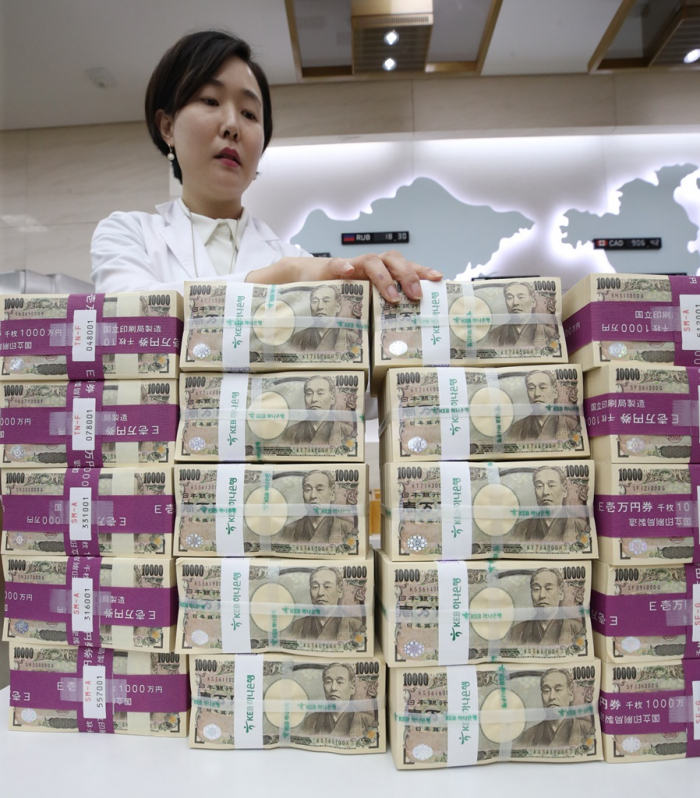Foreign exchange
Korea won at three-year high vs yen on rate differentials
South Korea government bond yields soar with three-, 10-year yields highest since 2014
By Mar 28, 2022 (Gmt+09:00)
2
Min read
Most Read
LG Chem to sell water filter business to Glenwood PE for $692 million


Kyobo Life poised to buy Japan’s SBI Group-owned savings bank


KT&G eyes overseas M&A after rejecting activist fund's offer


StockX in merger talks with Naver’s online reseller Kream


Mirae Asset to be named Korea Post’s core real estate fund operator



South Korea’s won currency on Monday hit its strongest point against the Japanese yen in more than three years on higher interest rates and concerns over the weakening fundamentals of the world’s third-largest economy.
The won rose 0.4% to reach 9.97 against the yen at the close of South Korea’s currency market, its firmest position versus the Japanese currency since Dec. 14, 2018.
That came as the Bank of Korea is expected to raise interest rates further after restoring the policy rate to a pre-pandemic level of 1.25% in January with three hikes since August last year to curb rising inflationary pressure. The US Federal Reserve also started tightening its monetary policy.
On the other hand, Japan’s central bank on Monday made two offers in a single day to buy an unlimited amount of government bonds to keep the yield low, according to media reports, while maintaining its short-term rate target at -0.1% set earlier this month.
Such ultra-loose policy widened gaps between Japan’s government bond yields and those of the US and South Korea. The yen also tumbled to a six-year low of 123.25 to the dollar.
Investors grew worried about Japan’s economic fundamentals as surging raw material prices due to the war in Ukraine have slashed its current account surplus.
KOREA’S GOVERNMENT BOND YIELDS SOAR
South Korea’s bond yields soared on expectations of the Fed’s further interest rate hikes and a massive supplementary budget by the country’s new government.
The highly liquid three-year Korean government bond yield rose 24.2 basis points to 2.747%, the highest since June 12, 2014. The 10-year note also grew 16 bps to 3.031%, also the peak since Sept. 17, 2014.
That came as the Fed is predicted to ramp up interest rates by 50 bps at the next policy meeting in May to stem inflation. Foreign investors often sell South Korean bonds to add US treasuries for higher yields.
In addition, South Korea’s President-elect Yoon Suk-yeol is seeking extra spending of up to 50 trillion won ($40.9 billion) to support small companies and the self-employed hit by COVID-19.
The government is expected to issue deficit bonds to fund the budget, souring bond market sentiment.
Write to Ik-Hwan Kim at lovepen@hankyung.com
Jongwoo Cheon edited this article.
More to Read
-
 Central bankBOK governor nominee stokes slower rate hike expectations
Central bankBOK governor nominee stokes slower rate hike expectationsMar 25, 2022 (Gmt+09:00)
2 Min read -
 EconomyBOK sees inflation at 11-year high as oil tops $100 on Ukraine crisis
EconomyBOK sees inflation at 11-year high as oil tops $100 on Ukraine crisisFeb 24, 2022 (Gmt+09:00)
3 Min read -
 Banking & FinanceBOK restores interest rates to pre-pandemic level
Banking & FinanceBOK restores interest rates to pre-pandemic levelJan 14, 2022 (Gmt+09:00)
3 Min read
Comment 0
LOG IN


